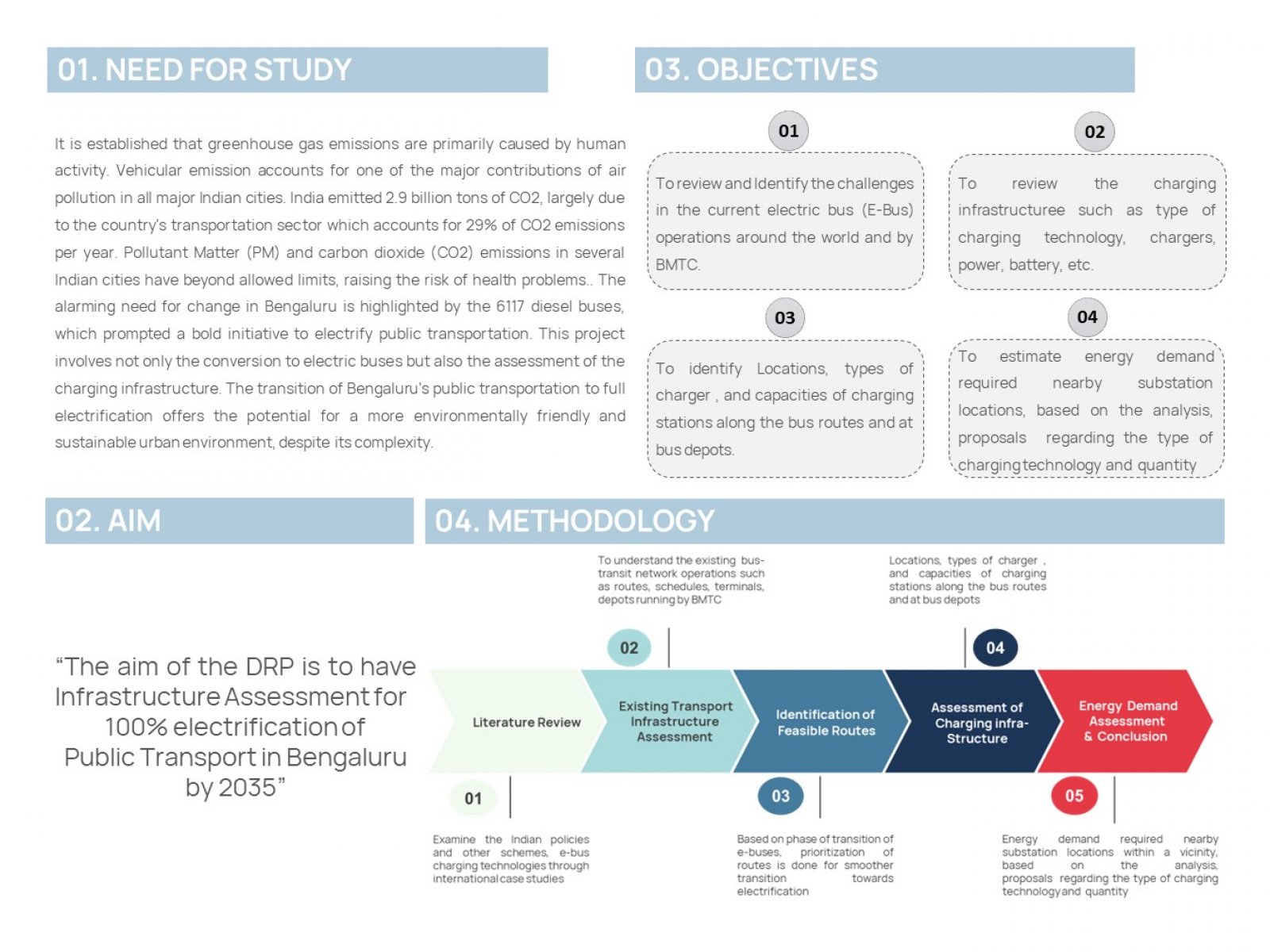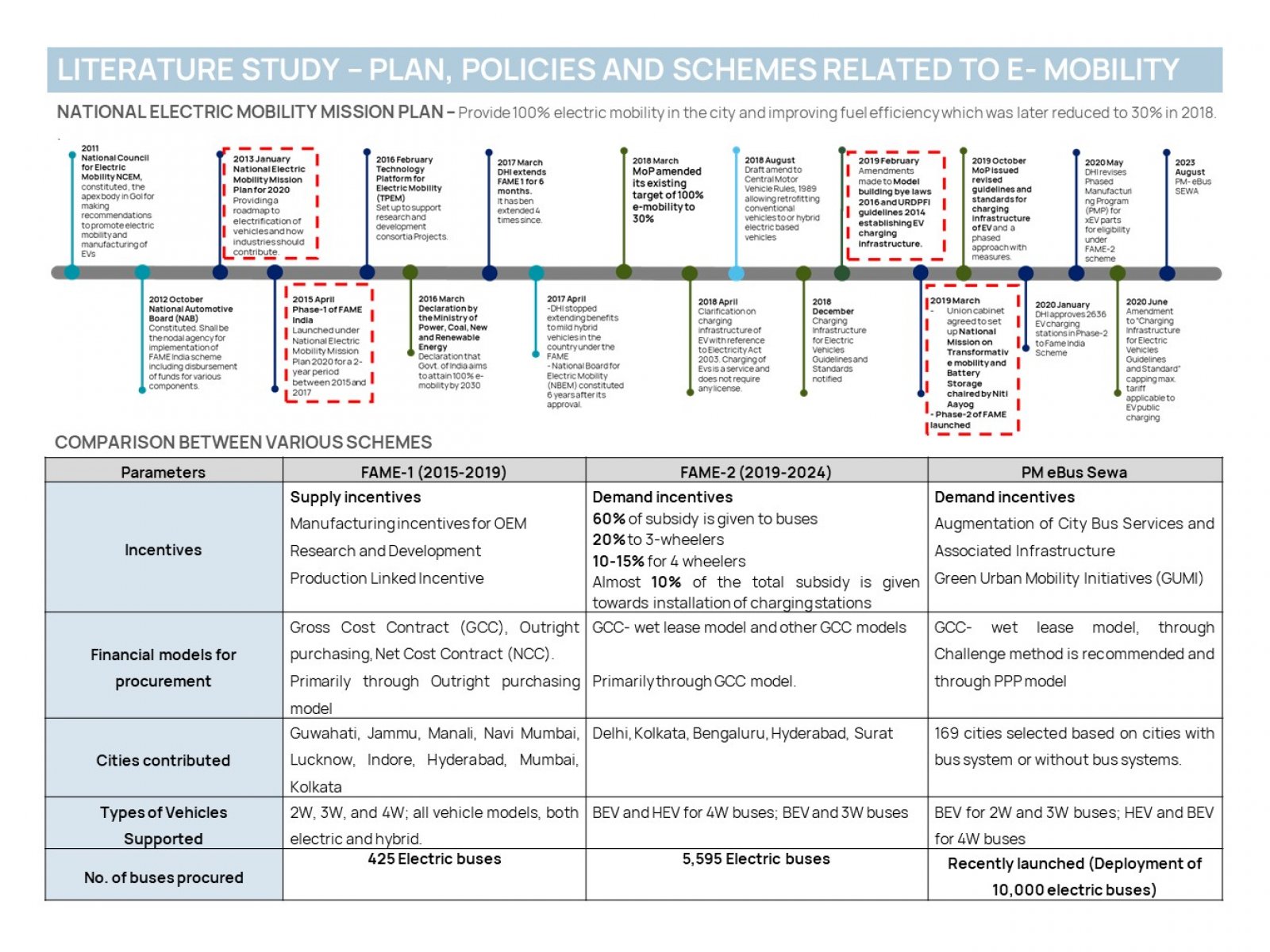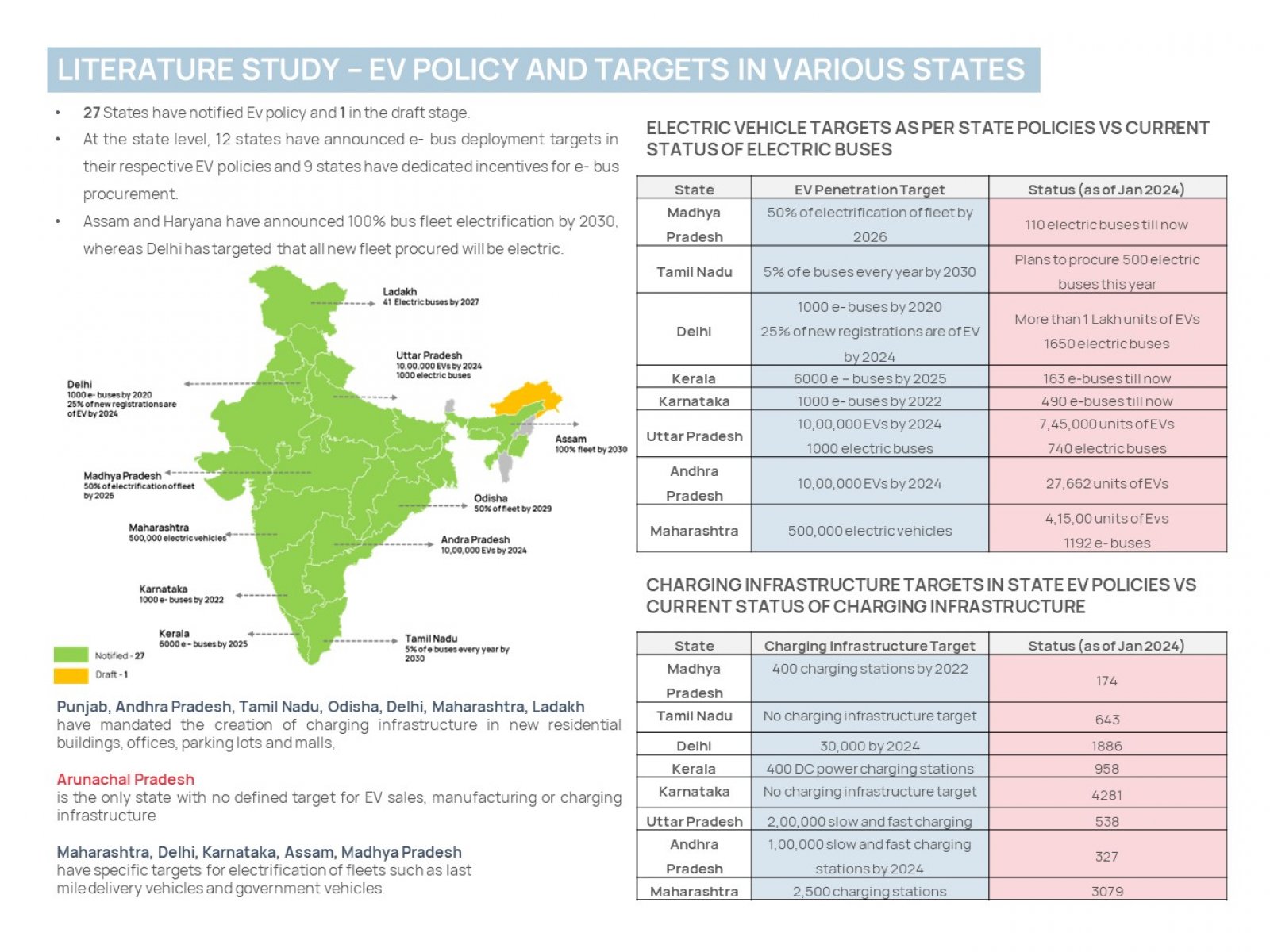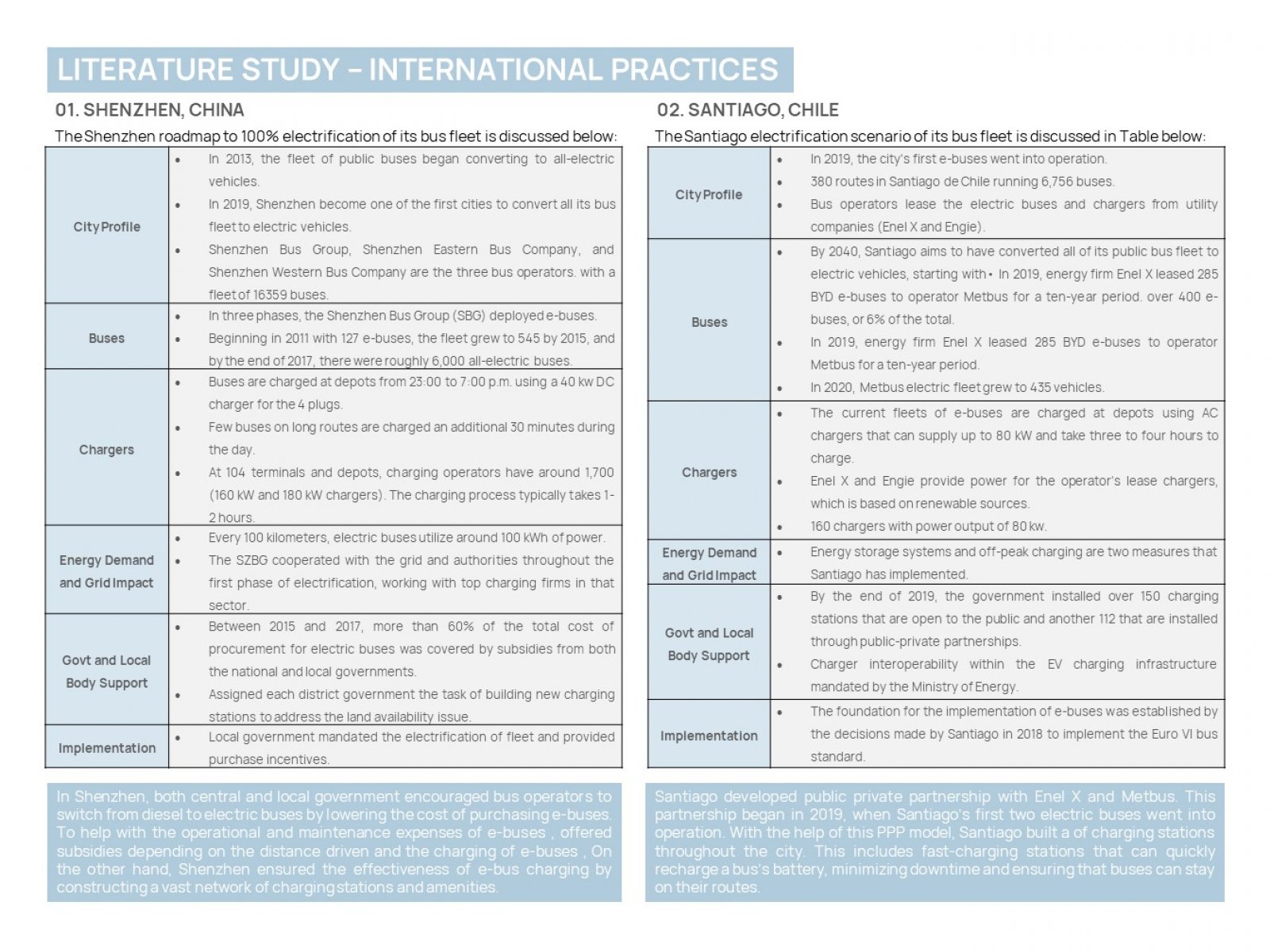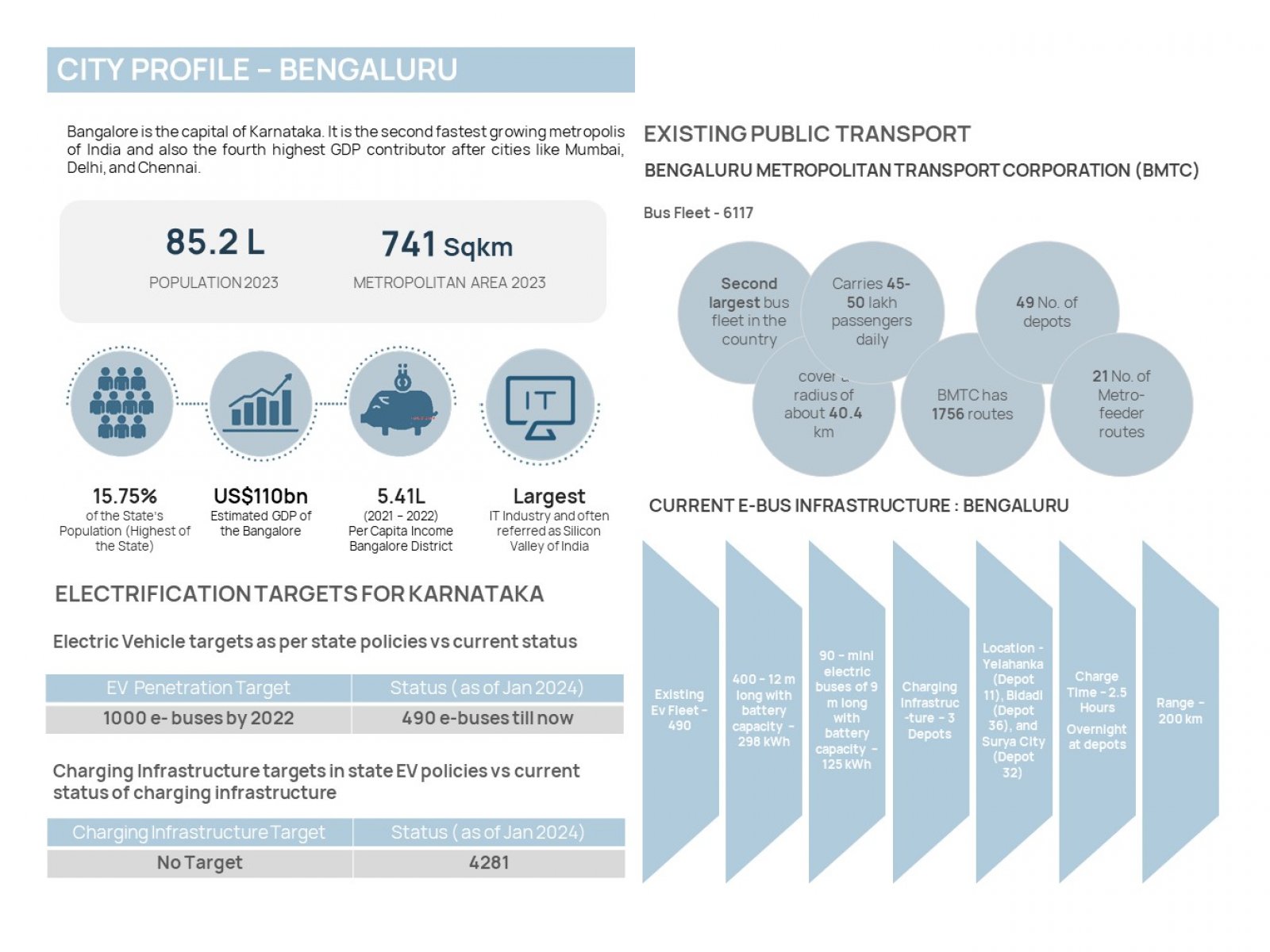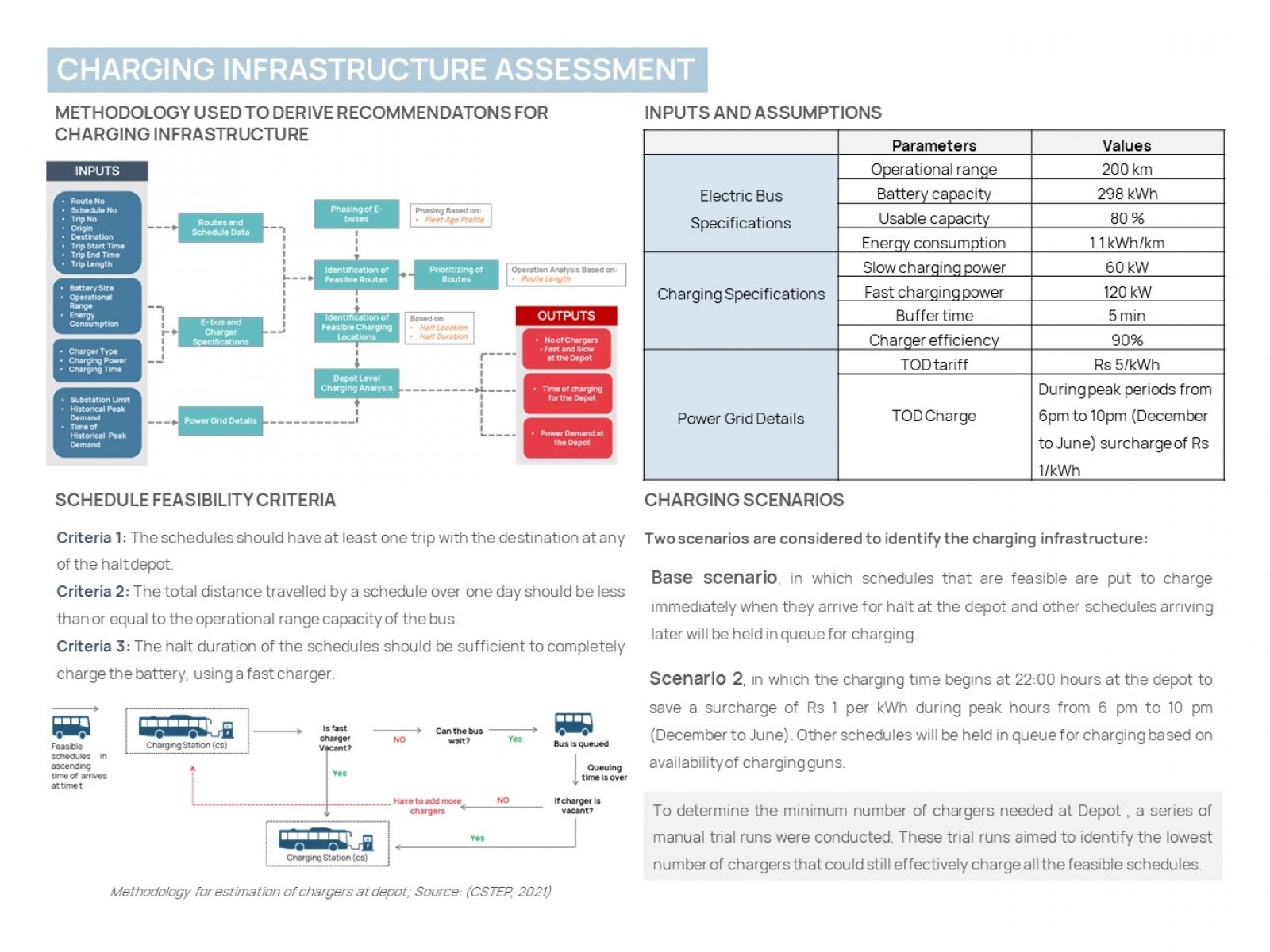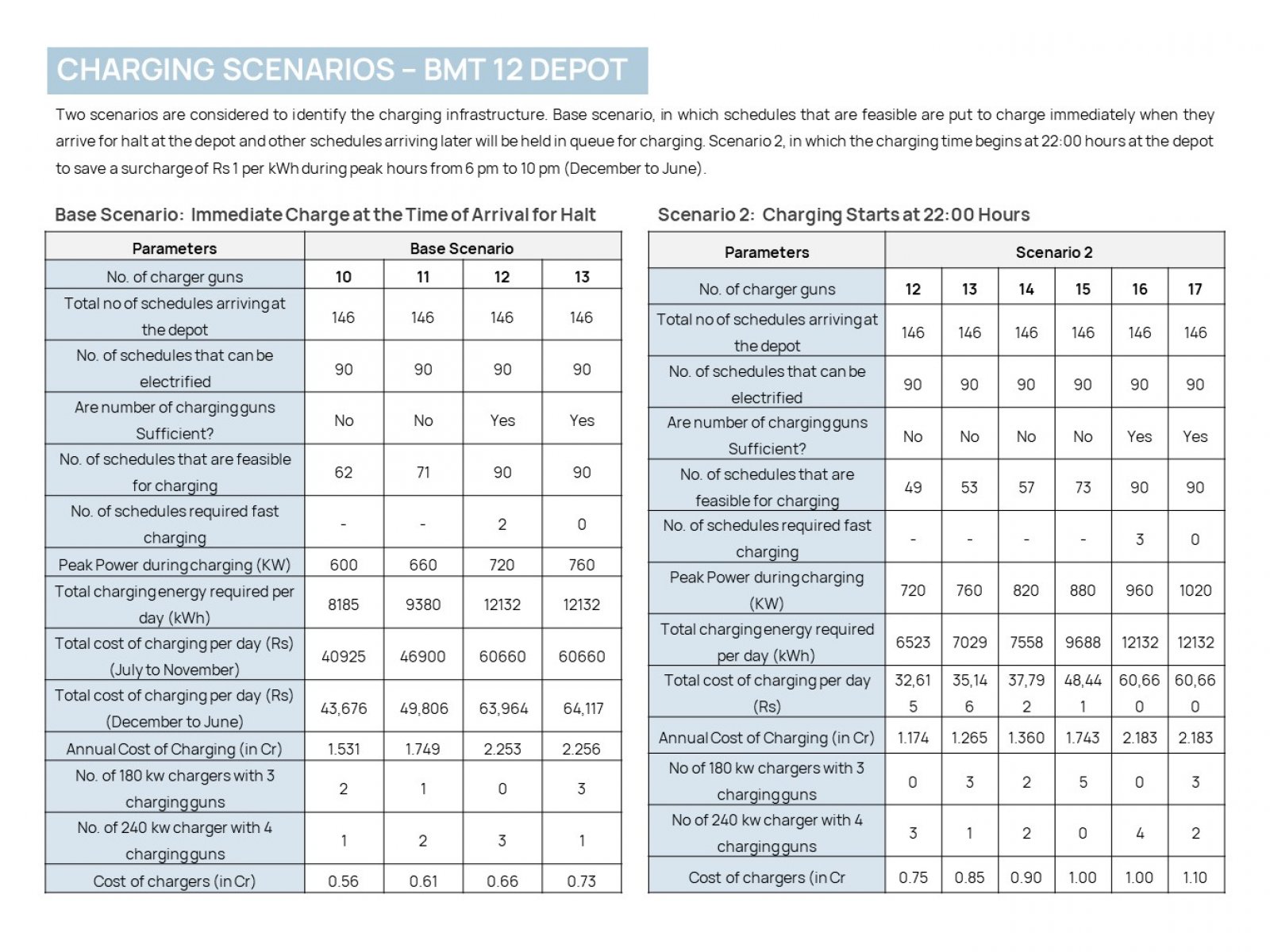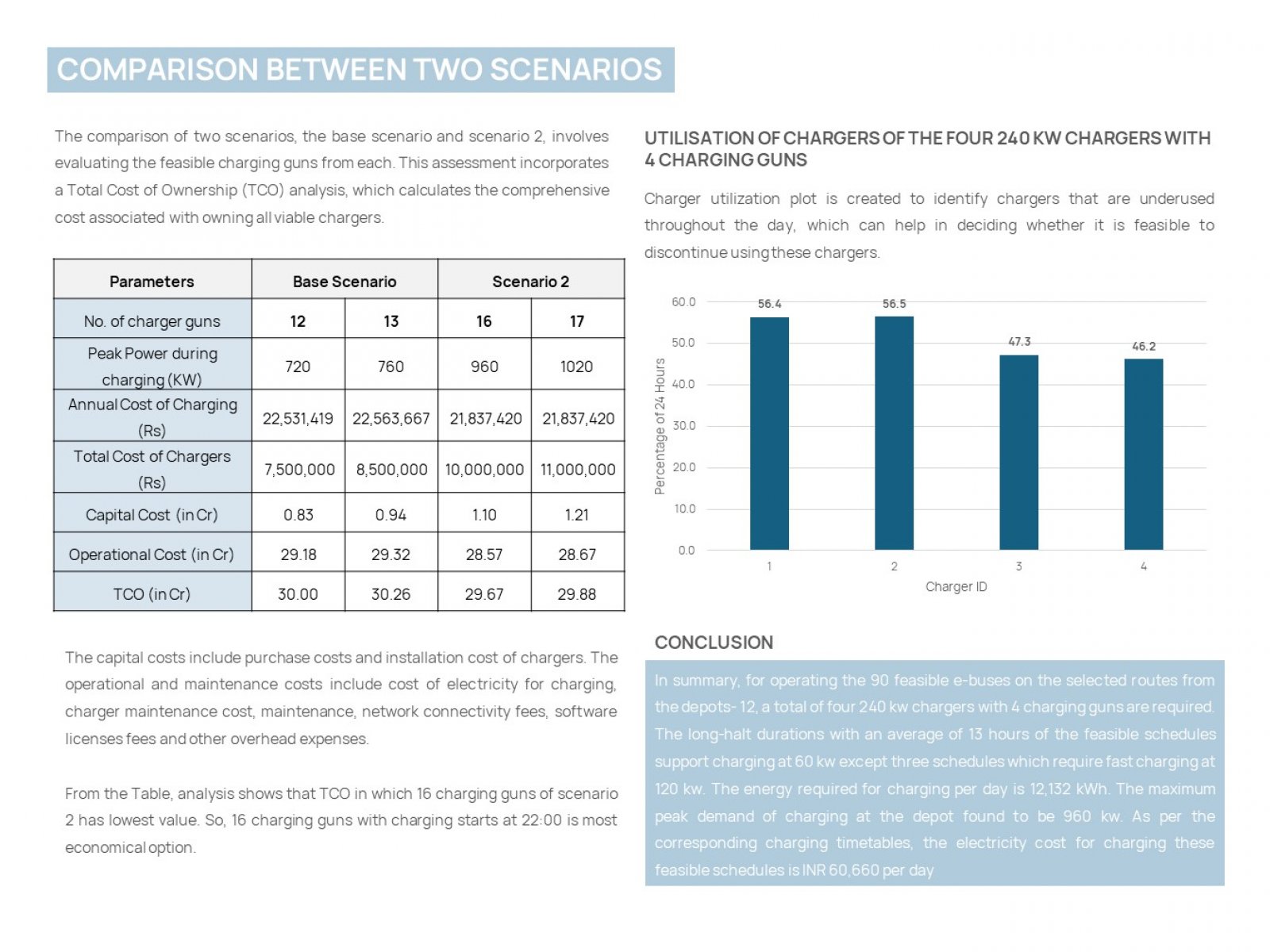Your browser is out-of-date!
For a richer surfing experience on our website, please update your browser. Update my browser now!
For a richer surfing experience on our website, please update your browser. Update my browser now!
For the development towards sustainable transportation, cities around the world are deploying electric buses in public transport in a quick approach that enables a significant reduction in GHG emissions. The electrification of buses is the first step in the city’s electrification strategy as it imposes high infrastructure planning including decisions on bus selections and charging technology suitable for the city network. The selection of bus and charging technology suitable for the city will be decided based on the route characteristics, capacity of battery capacity in electric buses, charging time, and halt location. This research investigates the charging infrastructure needed while introducing electric buses in Bengaluru for 100% electrification. A framework for single depot charging infrastructure assessment is developed based on conditions such as minimum operational km, minimum state of charge, charging duration, and halt duration. Using this framework, the number of chargers required, time of duration of charging, and energy demand due to charging is calculated for allocation across the feasible routes arriving at the depot. The charging infrastructure assessment includes identification of the feasible schedules based on different feasibility criteria. The impact of time of charging shows a significant difference in the selection of a number of chargers. The study focuses on evaluating two scenarios based on the time of charging. Base case, where vehicles begin charging immediately upon arrival, against scenario 2, which delays charging until 22:00 hours, it is observed that scenario 2 is more economically viable. However, it will increase the capital cost of chargers. But, the key advantage of postponing the start of charging to 22:00 lies in avoiding the evening peak energy rates imposed between 18:00 and 22:00 hours. During these peak hours, an additional charge of ?1 is levied on the monthly bills from December to June, leading to increased charging costs and, consequently, higher operational expenses. Therefore, initiating charging at 22:00 with a greater number of charging guns is a more cost-effective strategy than starting charging upon scheduled arrival.
